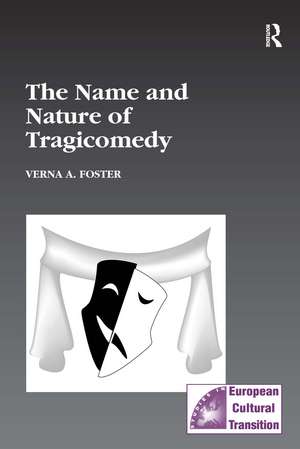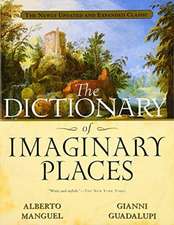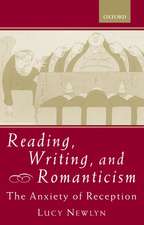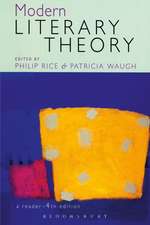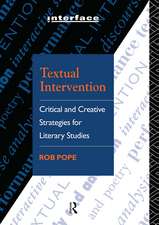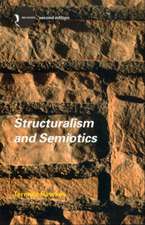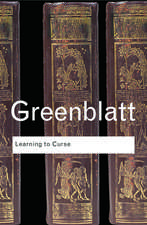The Name and Nature of Tragicomedy: Studies in European Cultural Transition
Autor Verna A. Fosteren Limba Engleză Hardback – 20 feb 2004
Din seria Studies in European Cultural Transition
- 13%
 Preț: 338.33 lei
Preț: 338.33 lei - 25%
 Preț: 501.74 lei
Preț: 501.74 lei - 16%
 Preț: 238.48 lei
Preț: 238.48 lei - 26%
 Preț: 764.62 lei
Preț: 764.62 lei - 16%
 Preț: 338.33 lei
Preț: 338.33 lei - 17%
 Preț: 247.40 lei
Preț: 247.40 lei -
 Preț: 469.34 lei
Preț: 469.34 lei - 25%
 Preț: 486.20 lei
Preț: 486.20 lei - 25%
 Preț: 767.07 lei
Preț: 767.07 lei -
 Preț: 264.86 lei
Preț: 264.86 lei - 9%
 Preț: 935.37 lei
Preț: 935.37 lei - 31%
 Preț: 766.24 lei
Preț: 766.24 lei - 12%
 Preț: 299.52 lei
Preț: 299.52 lei - 16%
 Preț: 130.21 lei
Preț: 130.21 lei -
 Preț: 467.26 lei
Preț: 467.26 lei - 18%
 Preț: 1000.27 lei
Preț: 1000.27 lei -
 Preț: 436.14 lei
Preț: 436.14 lei -
 Preț: 430.96 lei
Preț: 430.96 lei -
 Preț: 323.23 lei
Preț: 323.23 lei - 12%
 Preț: 299.52 lei
Preț: 299.52 lei -
 Preț: 436.14 lei
Preț: 436.14 lei - 16%
 Preț: 335.02 lei
Preț: 335.02 lei - 13%
 Preț: 334.55 lei
Preț: 334.55 lei -
 Preț: 482.94 lei
Preț: 482.94 lei - 12%
 Preț: 325.34 lei
Preț: 325.34 lei
Preț: 736.38 lei
Preț vechi: 989.73 lei
-26% Nou
Puncte Express: 1105
Preț estimativ în valută:
140.90€ • 147.12$ • 116.62£
140.90€ • 147.12$ • 116.62£
Carte tipărită la comandă
Livrare economică 04-18 aprilie
Preluare comenzi: 021 569.72.76
Specificații
ISBN-13: 9780754635673
ISBN-10: 0754635678
Pagini: 232
Dimensiuni: 156 x 234 x 25 mm
Greutate: 0.45 kg
Ediția:1
Editura: Taylor & Francis
Colecția Routledge
Seria Studies in European Cultural Transition
Locul publicării:Oxford, United Kingdom
ISBN-10: 0754635678
Pagini: 232
Dimensiuni: 156 x 234 x 25 mm
Greutate: 0.45 kg
Ediția:1
Editura: Taylor & Francis
Colecția Routledge
Seria Studies in European Cultural Transition
Locul publicării:Oxford, United Kingdom
Cuprins
Contents: Preface; Introduction; The name of tragicomedy: problems of identity; Early English tragicomedy: from providential design to metatheatre; Shakespearean tragicomedy: Measure for Measure: the Duke's problem play versus Shakespeare's tragicomedy; The Winter's Tale: tragicomedy of wonder; The tragicomedy of sexuality and surprise: Beaumont and Fletcher and Massinger; Sexuality and tragicomic genre in the plays of Fletcher; The moral tragicomedy of Massinger; Tragicomedy in transition; Modern tragicomedy I: tragicomedy and realism: Ibsen: The Wild Duck; Chekhov: The Cherry Orchard; Synge: The Playboy of the Western World; O'Casey: Juno and the Paycock; Williams: A Streetcar Named Desire; Modern tragicomedy II: metatheatre and the absurd: Beckett: Waiting for Godot; Ionesco: The Chairs and The Killer; Pinter: The Caretaker and No Man's Land; Conclusion: the nature of tragicomedy; Select bibliography; Index.
Notă biografică
Verna A. Foster is an associate professor of English at Loyola University Chicago, where she teaches courses in modern drama, Shakespeare, and dramatic theory. She has published numerous essays on early modern and modern drama.
Recenzii
'Foster is [...] illuminating in her comments about style... an intriguing account of tragicomedy's emergence, its revival and its dramaturgical importance.' Early Modern Literary Studies 'Such a study, surely reflecting wide personal experience apparently acquired through extensive playgoing as well as teaching and research, is in many ways a welcome addition in an age of intense specialization... Foster engages the dynamics of audience response in nuanced and generating ways, as she demonstrates important family resemblances between Renaissance and modern tragicomedy: the central contribution of this book, and an important one.' Comparative Drama
Descriere
Focusing on European tragicomedy from the early modern period to the theatre of the absurd, Verna Foster here argues for the independence of tragicomedy as a genre that perceives and communicates human experience differently from the various forms of tragedy, comedy, and serious drama. By exploring dramaturgical similarities between early modern and modern tragicomedies, she demonstrates the persistence of tragicomedy's generic markers and provides a more precise conceptual framework for the genre than has so far been available.
